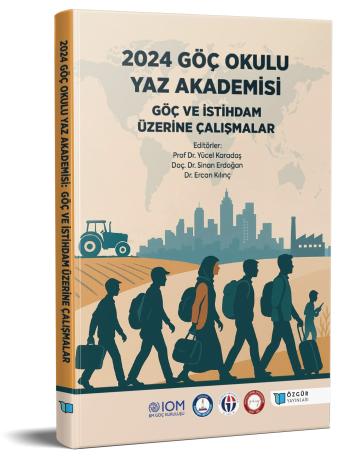
What Are the Individual Factors Determining Refugee Employment? A Case of the Sultanbeyli District
Şu kitabın bölümü:
Karadaş,
Y.
&
Erdoğan,
S.
&
Kılınç,
E.
(eds.)
2025.
2024 Göç Okulu Yaz Akademisi Göç ve İstihdam Üzerine Çalışmalar.
Özet
Refugees face significant barriers to accessing employment, including language barriers, work permit limitations, social tensions with host communities, and economic challenges. Therefore, identifying the factors influencing refugees’ participation in the labor market is crucial for developing solution-oriented approaches. To identify the individual factors influencing refugee employment in socio-economically disadvantaged districts, this study examines Sultanbeyli as a case study. Key variables analyzed include Turkish language proficiency, vocational training, current employment status, vocation, gender, age, marital status, education level, disability, in-kind assistance, cash assistance, household size, and household income. Employing binary logistic regression, the findings highlight that Turkish language proficiency is a critical determinant of employment, emphasizing the importance of linguistic integration for refugees. Additionally, being currently employed, having vocational training, and being younger were positively associated with employment likelihood. In contrast, receiving in-kind assistance and possessing higher levels of education were linked to lower employment rates, reflecting potential mismatches between refugee qualifications and the demands of the local labor market. These results align with the previous studies while revealing region-specific employment dynamics shaped by language barriers and economic conditions in Sultanbeyli. The study highlighted the necessity of targeted interventions, such as vocational language programs and tailored workforce development initiatives, to enhance refugee inclusion and integration into the labor market.

